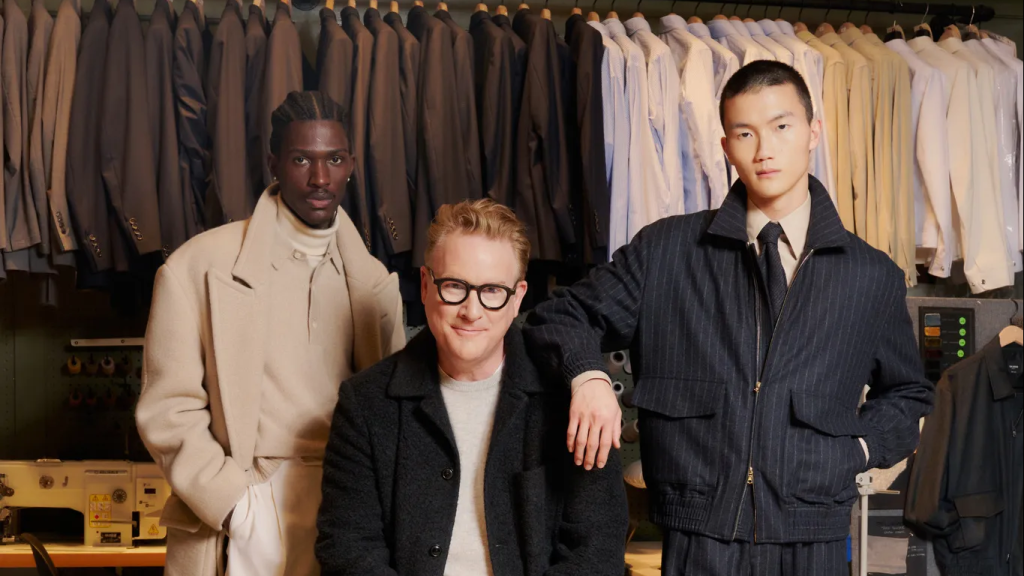The designer has created special fabrics, silhouettes and proportions for his return to the runway in Florence.

BY JEAN E. PALMIERI / Link to article
NEW YORK — It’s been four years since Todd Snyder showed his collection on the runway but when the team at Pitti Uomo started talking to him about making his return to the catwalk during their January show, it didn’t take a lot of convincing.
Pitti remains one of the menswear community’s most respected shows and over the years only a handful of American designers and companies have been given the opportunity to be featured there, including Thom Browne, Virgil Abloh for Off-White, John Varvatos, Telfar and Brooks Brothers.

“Honestly, it’s a dream come true for me — it’s bigger than anything I’ve ever done,” Snyder said.
This return to the spotlight also marks a turning point for the Todd Snyder brand, which was founded in 2011. For many seasons he was one of the only American menswear designers to show in New York, but once he made the decision to cease wholesaling his collection to concentrate on his direct-to-consumer efforts, he stopped. Snyder, whose business surpassed $100 million in sales last year, currently operates 15 stores around the U.S., with three others slated to open in the spring and a goal of 20 by the end of the year.
Showing at Pitti also means that he’s going to explore a return to wholesale, targeting international accounts initially. But he’s open to having conversations with potential partners in the U.S. as well. He’s also exploring opening stores in Europe, starting with London in 2025, he revealed, with a hope to have two to three international units by the end of next year.
He views his show at Pitti as the first stepping stone in this journey.
Snyder admitted that it’s been a goal of his to show at Pitti for more than a decade, and “the timing is right now. We built our business here in the U.S., we’ve opened 15 stores, and we’ve got a really strong base. So now it’s time for us to go and do that in Europe and wherever else.”
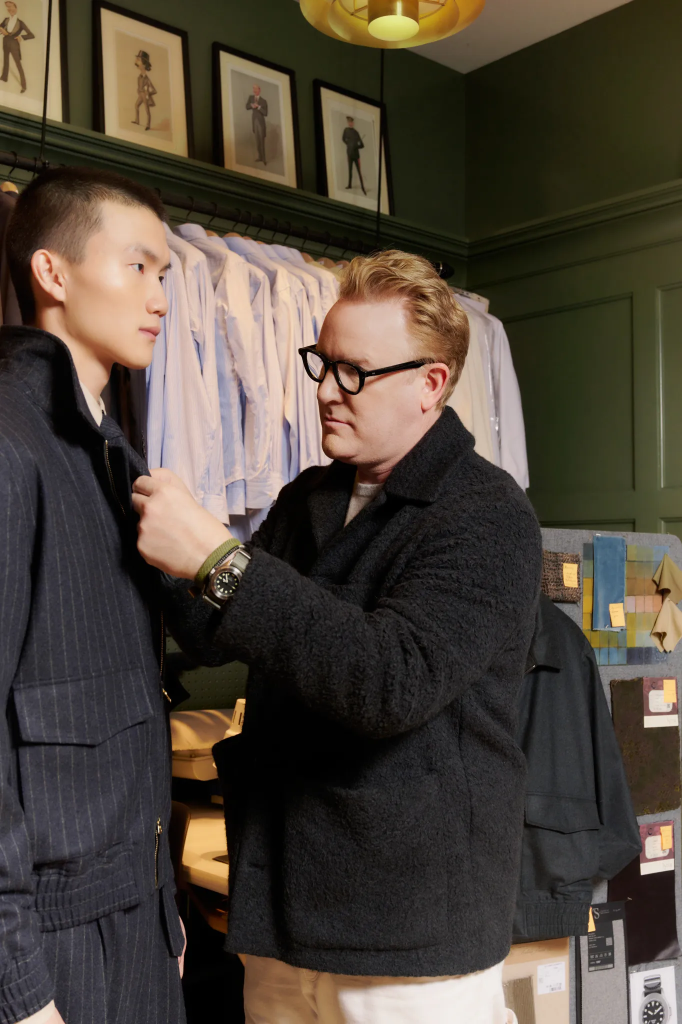
He said his hope is to find like-minded wholesale partners who are willing to work closely to help grow the brand organically in new markets.
“I’ve always had a voice here,” he said. “And it’s always been well received, but it’s nice to be able to expand and test the waters.”
In addition, the show, which will be held Tuesday, the opening day of Pitti, at 5 p.m. local time at Stazione Leopolda, will serve to tease his first collection for Woolrich. As reported, the designer was named creative director of Woolrich Black Label by Todd Snyder, a new upscale line that will blend the heritage of the brand with a more modern sensibility.
With all of this on his plate, Snyder admits that he’s a tad nervous.
“The pressure is definitely on,” he said during a preview shoot with WWD at his flagship store in New York City last month. “I know what Pitti, and being in Europe, represents and I know I need to bring my ‘A’ game there.”
Once he knew the game was on, Snyder said he spent a lot of time in Italy visiting his favorite mills, including Lyria in Prato in Tuscany, to unearth the best fabrics and patterns to make this collection especially memorable. “I really threw myself into it,” he said. “I knew this was a moment.”
Snyder has historically leaned on Italy as the key source of his collection, but it was different this time. “In a way, it’s a little bit of a homecoming for me, but it’s also an opportunity to express what I love about my craft and work with tailors at factories to recreate beautiful clothes.”

He said when conceiving this collection, he started “from the fibers up. Typically with designers, you’ll pick fabric that’s already completed versus going into the archives.”
But in this case, he worked with the third-generation owner of Lyria, showing him his mood board and exploring the different shapes and materials he was pondering, to build the line, which he’s calling The Modernist.
“I feel like designing clothes is somewhat similar to architecture,” he said. “You create a foundation with different kind of shapes and materials that you use in different ways.”
What that translates into is a collection with “more relaxed proportions as well as statement pieces that are familiar but nonetheless turned on their heads through the use of innovative fabrics. Case in point is a military trench in a shiny, sleek fabric, a fuzzy mohair overcoat and a cashmere rowing blazer.
This collection will be marked by “softer, drapier fabrics, but with body because you don’t want it to be limp,” he said. “It has to have a foundation and that’s hard.”
Snyder said the collection overall will illustrate “what I am and what I represent,” which is high-quality, classic yet updated American menswear. “Snyder in Dutch means ‘cutter’ or tailor,” he said, “and tailoring is always my favorite thing to do. I used to work in a tailor shop and make my own shirts and I’m really going back to that. A lot of my inspiration has been Old World tailoring with a New York sensibility.”
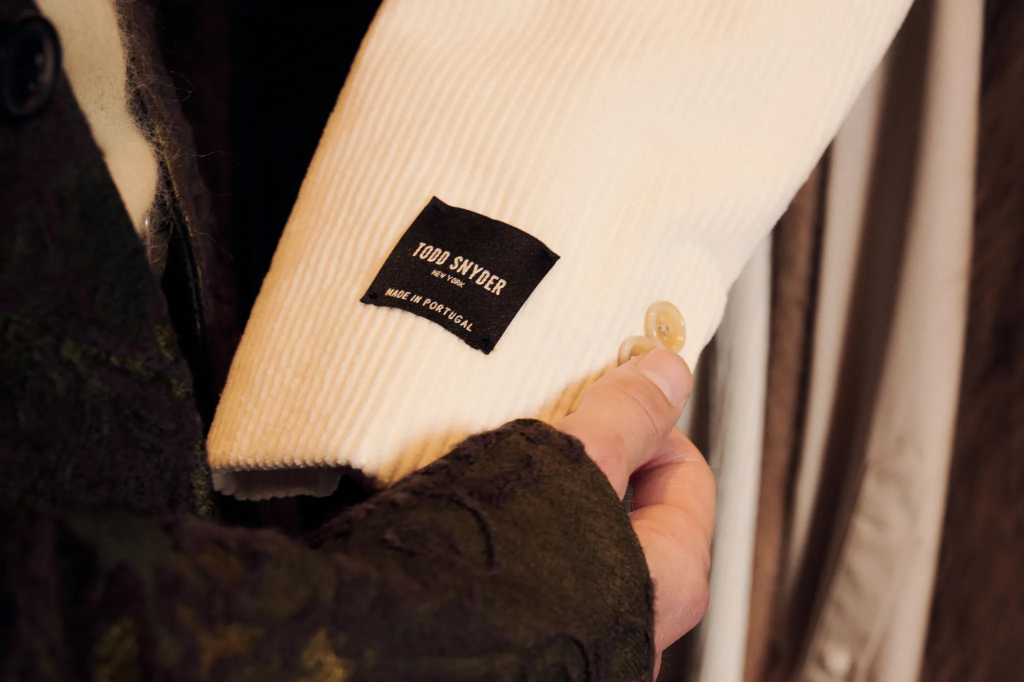
He said in his opinion, “American fashion is almost like a melting pot of all the different trends that are out there. I just fell in love with the idea of reinventing the leisure suit,” he said, pointing to an updated pinstripe model. “And that for me is what American style is — reinterpreting the classics and thinking about them in a different way, similar to a lot of midcentury architects who reinvented thinking about space and lines and going after them in a very meaningful way. It really reinforces a message that came from Europe, but with an American lens on it.”
It’s this sensibility that will also make an appearance in the Woolrich Black Label collection, he said. Although the line will officially make its debut during Milan Men’s Fashion Week, Snyder plans to tease around 20 looks during his show in Florence.
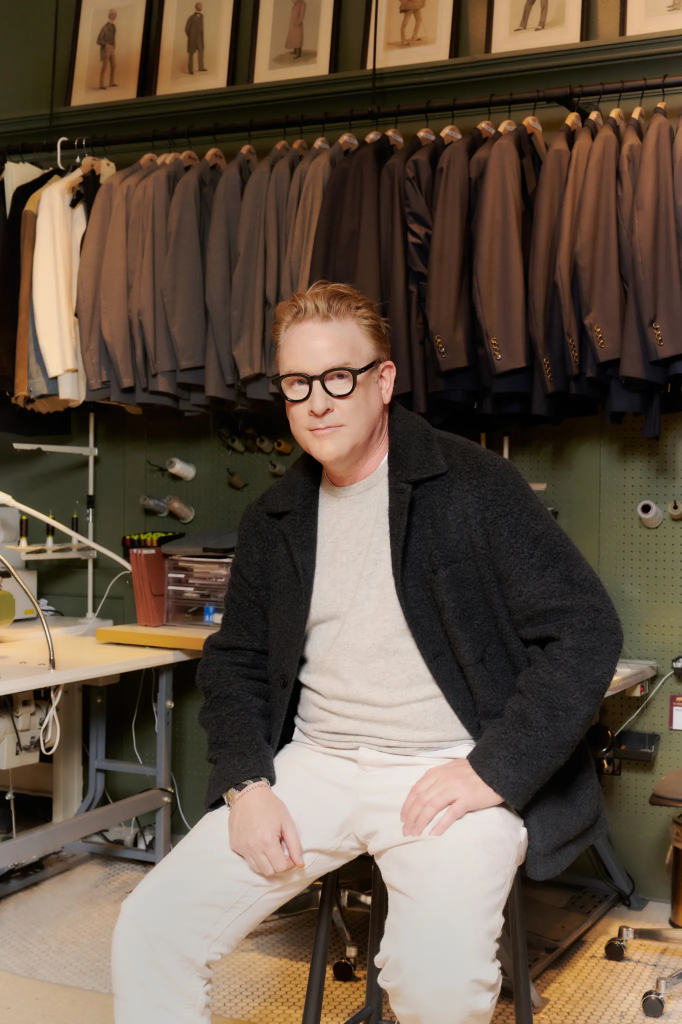
“It’s completely separate but with similar principles,” he said, adding that he has worked to “reimagine where they’re going to be in five years, and thinking about how to reposition the brand in a way that’s meaningful.”
It’s different from the other collaborations he’s done since launching his own line. “When I’ve done collabs before it’s usually a small capsule, and it’s meant to sell out quickly and build a lot of hype. I want this first one to do the same, but we want this to really continue and be something that can be a big part of our business.”
He said the line will be focused on “authentic outdoorsman” product, “rugged but modern at the same time.” There will be two different collections, one built around heritage that is “very archive focused,” such as jackets in Woolrich’s signature buffalo plaid but in 100 percent cashmere, and another that will feature more technical fabrics and updated silhouettes, such as marshmallow coats.
“There’s obviously a perception that I’ve done lots of collaborations,” he said, “but this is really a partnership. It’s me working as a creative director, changing the logo, changing the labels, rethinking how the brand was interpreted and how people perceive it. I’ve seen some great things in their archive, but how do you bring it to the new person and make them think, ‘Oh, that’s really clever.’ That’s always kind of how I’ve designed: make it new without completely forgetting about where it came from.”
With both Woolrich and his own collection, Snyder said he’ll be working down to the wire to ensure everything is perfect before the lights come on. “As a designer, you never know what you’re going to get until a week before,” he said. “So it’s nerve wracking, but it’s what drives me. What’s important about the process is pushing myself, pushing proportions, pushing fabric, pushing silhouette. Those are the things that are really painful to get through. But when I get through to the other side, I’m like, ‘OK, I did something different.’ Art and creativity is what drives me.”
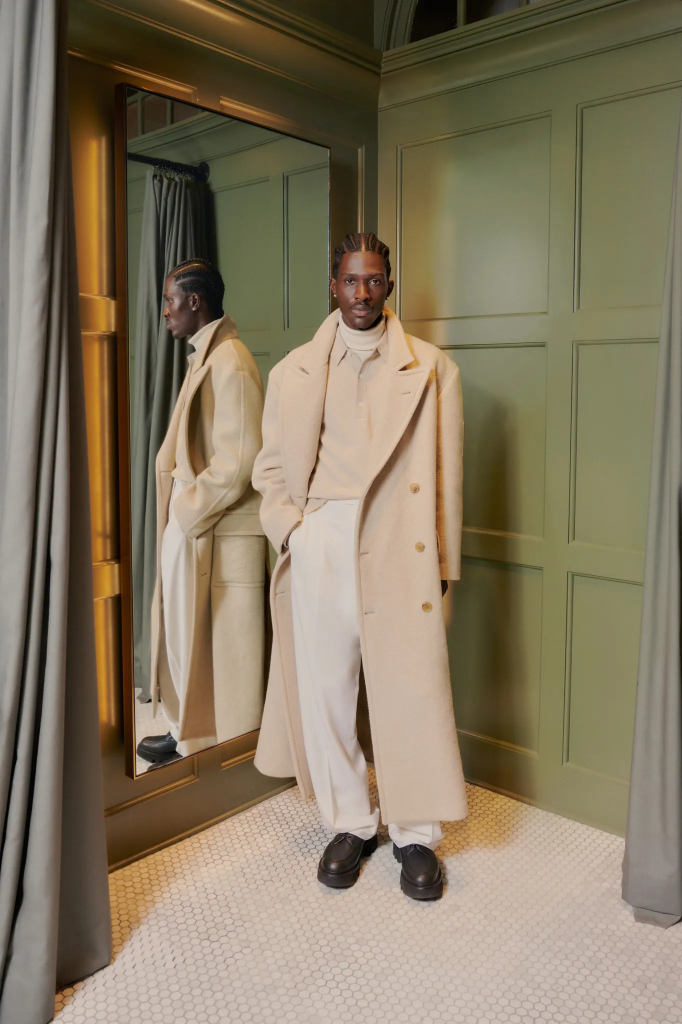
Ditto for many of his contemporaries such as Browne, Jerry Lorenzo, Emily Bode, Teddy Santis and the other designers who have managed to create and build successful businesses in the U.S.
“There’s a lot of really interesting things happening in American fashion that I’m excited about,” he said, “but so few people break through anymore. It’s very difficult to scale with the way things are structured.”
Snyder admitted that he too may not have broken out had it not been for his parent company, American Eagle Outfitters, which acquired the business for $11 million in 2015.
“I was scaling the business year over year, but you get to a point when you run out of credit,” he said. “There’s a $5 million ceiling that is impossible to break. I had to leverage my house twice, so American Eagle was a godsend for me. And they’ve been amazing supporters. It feels like the perfect partnership.”
